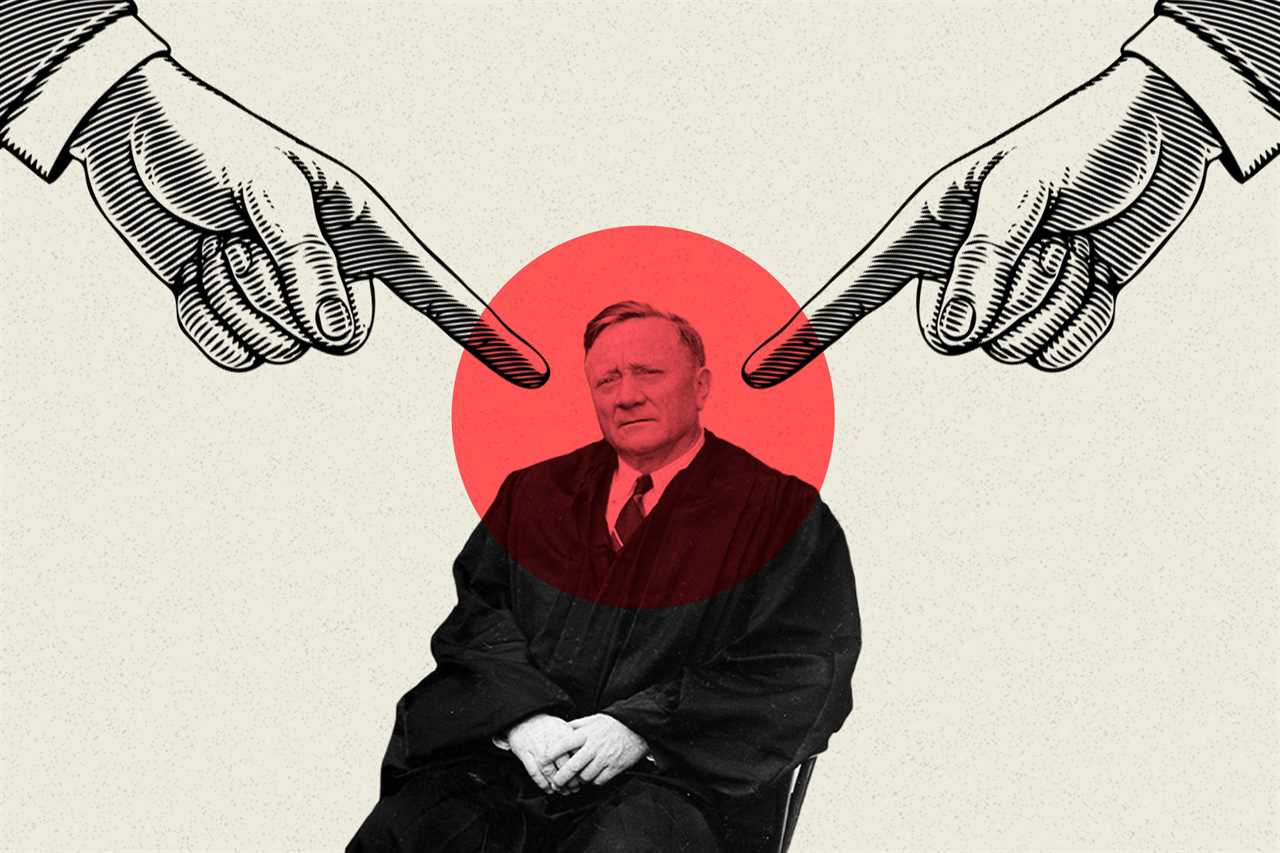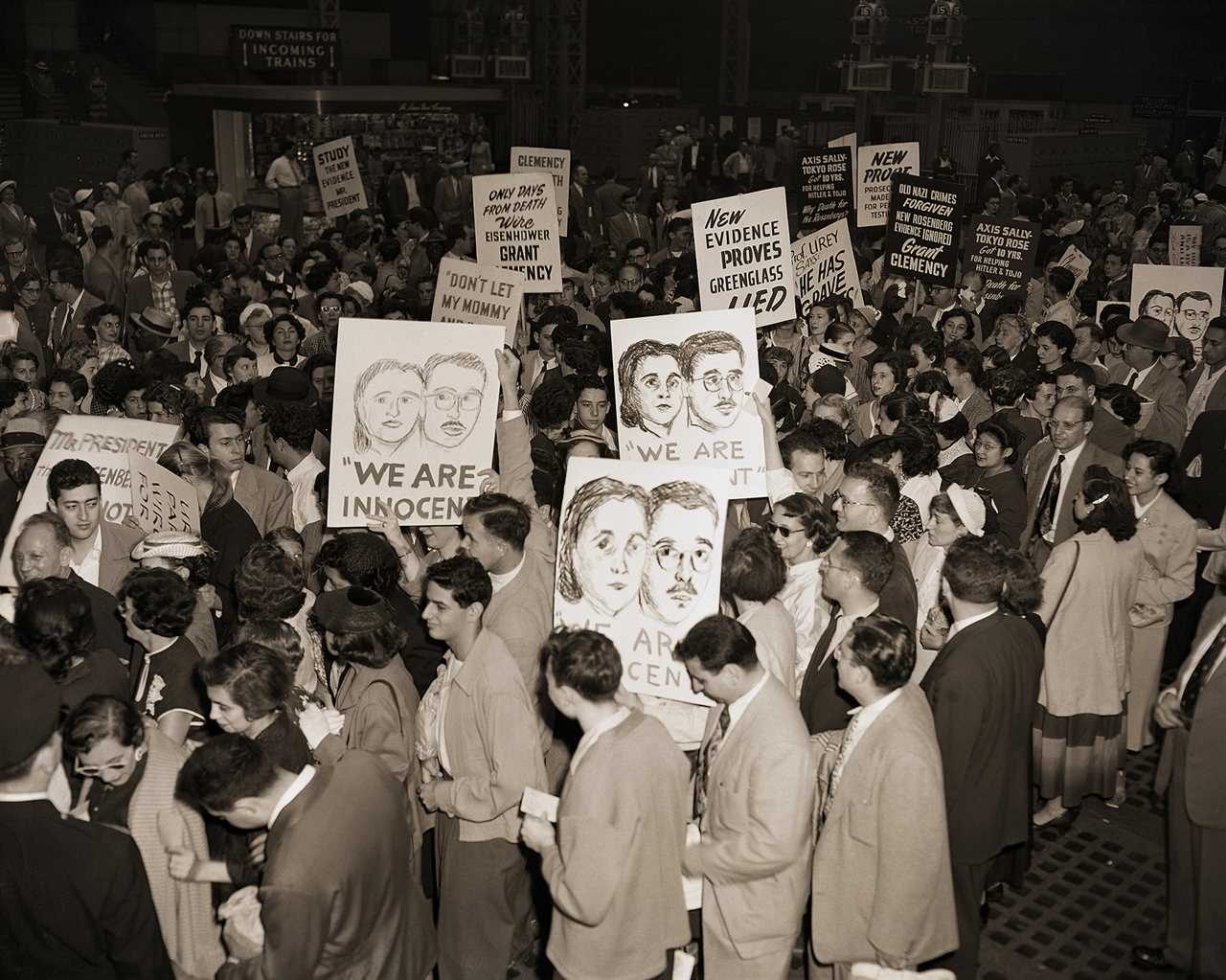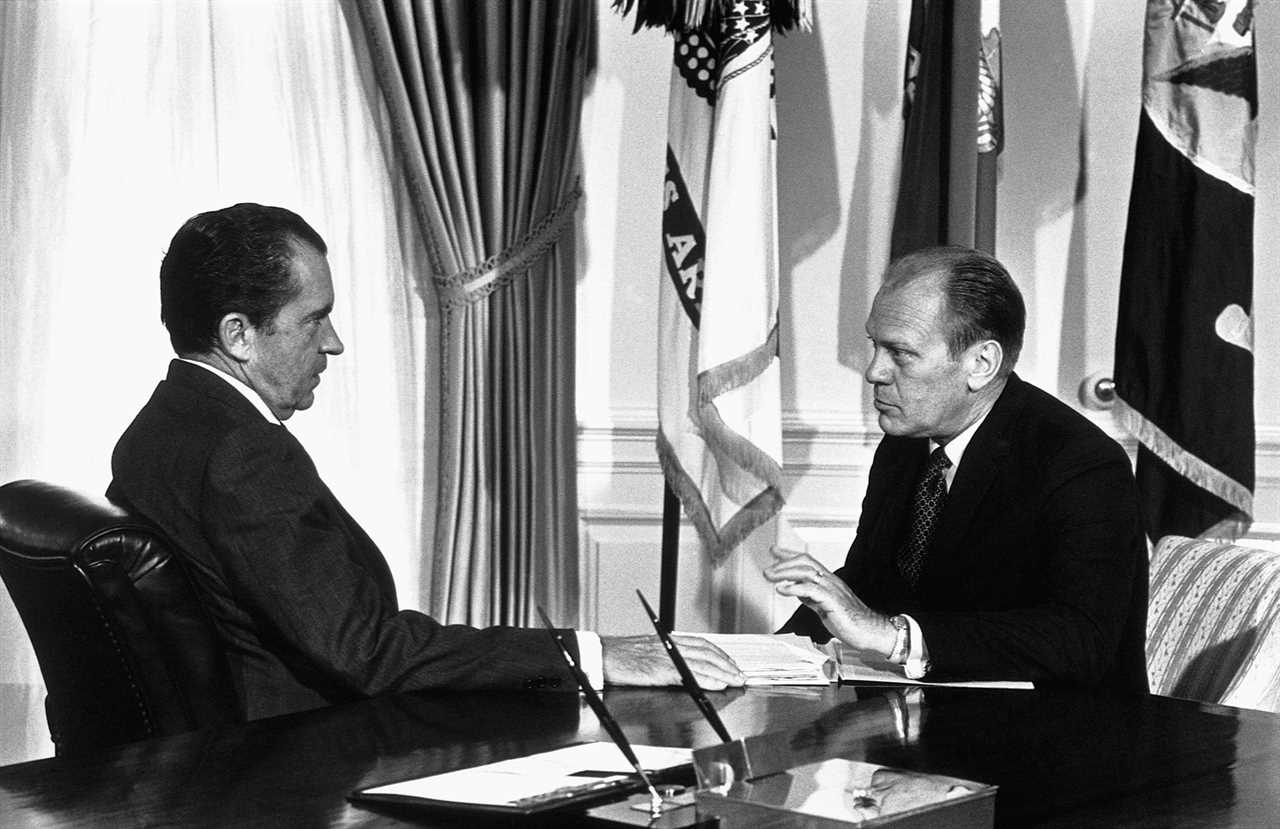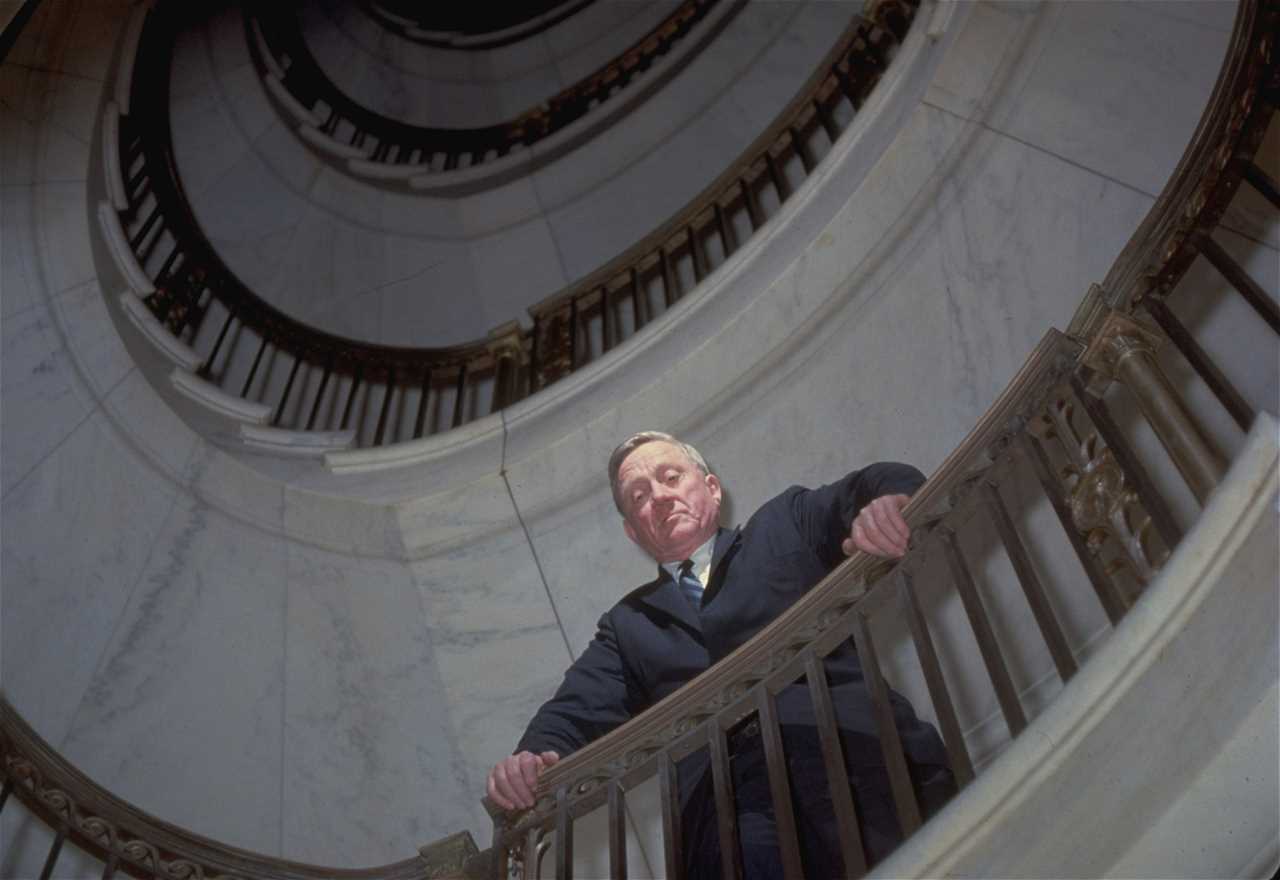
“They lied ... I believe that lying under oath is an impeachable offense,” Rep. Alexandria Ocasio-Cortez said of two Supreme Court justices on a June appearance on “Meet the Press.” She was livid at conservative Justices Neil Gorsuch and Brett Kavanaugh for voting to overturn Roe v. Wade after reportedly assuring two senators that they would do no such thing.
They aren’t the only possible impeachment targets on the Supreme Court. More than a million people signed a petition earlier this year calling for the impeachment of Clarence Thomas — citing both his vote to overturn Roe and his failure to recuse himself from a case involving the release of Jan. 6-related records, given the text messages sent by his wife, the conservative activist Virginia Thomas, known as Ginni, to the White House urging the overturning of the 2020 election.
Impeaching a Supreme Court justice is the kind of radical-sounding idea that arises at the limit of public patience with the court. But the notion has a real precedent in American politics. Although it is liberals who are sounding the loudest alarms now, the only serious impeachment effort in living memory was actually led by conservatives.
A half-century ago, the right was angry at the court for a series of 1960s liberal rulings. As Time Magazine described it at the time, “The court has been accused of everything from coddling criminals and handcuffing the police to approving hard-core pornography and banishing God from the public schools.” President Richard Nixon tried to put his stamp on the court soon after assuming office in 1969 with a pair of conservative nominees, but the Senate rejected both of them, fueling his fury at both the court and congressional Democrats.
So Nixon had House Minority Leader Gerald Ford, a Michigan Republican, target liberal Supreme Court Justice William O. Douglas for impeachment. In a remarkable two-hour address, the normally mild-mannered Michigan congressman tore into the veteran sitting justice, accusing Douglas of giving “legitimacy to the militant hippie-yippie movement,” attacking his personal life and linking him with porn and even the Mafia.
So far, there doesn’t appear to be much momentum in Congress for impeaching Gorsuch, Kavanaugh or Thomas. By contrast, Ford’s 1970 crusade against Douglas led to a six-month House investigation. And although it ended without Congress pursuing impeachment, the push suggests that Supreme Court critics should be careful what they set into motion.

Douglas’ anti-establishment writings and messy personal life made him a juicy target for the GOP. And lawmakers had mounted previous efforts to impeach him — in 1953, for granting a stay of execution of convicted Soviet spies Ethel and Julius Rosenberg, and in 1965, following his marriage to a 23-year-old woman, his fourth marriage.
Regional political issues were also a factor. Nixon, whose “Southern Strategy” helped him win the White House in 1968, looked to consolidate those gains by naming a Southerner to the court. Ford called the Senate’s rejection of Nixon’s first two (Southern) choices “a slap in the face” of the South. The president ultimately settled on Harry Blackmun of Minnesota — about as north as you can get, and as it turned out, one of the most liberal members on the court, who would go on to author Roe v. Wade in 1973.
It wasn’t just Republicans who were angry — conservative Southern Democrats also resented the direction of the court and singled out Douglas for their wrath. Two weeks before Ford’s speech, when the Senate was still considering the ill-fated nomination of G. Harrold Carswell, a federal appeals court judge from Florida, Sen. Robert Byrd (D-W.Va.) argued that Carswell “could help to restore a badly needed balance to the court on which Justice Douglas sits.”
Should the Senate reject Carswell, Byrd said, he hoped the House would begin impeachment proceedings against Douglas, “whose own words condemn him, not as one who is just mediocre, but as one who advocates violence and revolution in America.” The Senate rejected Carswell a week later.

On April 15, 1970, Ford took the House floor and began a speech making the public case against Douglas. Sounding like he was reading from a binder of oppo research, the congressman highlighted some of Douglas’ most provocative writings outside the court, such as his book, “Points of Rebellion.”
“Recently, there has appeared on the stands a little black book with the autograph, ‘William O. Douglas,’ scrawled on the cover in red,” Ford said. “Its title is ‘Points of Rebellion’ and its thesis is that violence may be justified and perhaps only revolutionary overthrow of ‘the establishment’ can save the country.
“The kindest thing I can say about this 97-page tome is that it is quick reading. Had it been written by a militant sophomore, as it easily could, it would of course have never found a prestige publisher like Random House. It is a fuzzy harangue evidently intended to give historic legitimacy to the militant hippie-yippie movement and to bear testimony that a 71-year-old Justice of the Supreme Court is one in spirit with them.”
In that book, Douglas wrote: “We must realize that today’s Establishment is the new George III, Whether it will continue to adhere to his tactics, we do not know. If it does, the redress, honored in tradition, is also revolution.” (George III was the king of England when the American colonies declared their independence.)
Ford also castigated Douglas for writing — while on the Supreme Court —in magazines such as Avant Garde, whose publisher, Ralph Ginzburg, had been convicted in 1963 of violating federal obscenity laws.
“When I first encountered the facts of Mr. Justice Douglas’ involvement with pornographic publications and espousal of hippie-yippie style revolution, I was inclined to dismiss his fractious behavior as the first sign of senility,” Ford said. “But I believe I underestimated the justice.”
“In case there are any ‘square’ Americans who were too stupid to get the message Mr. Justice Douglas was trying to tell us, he has now removed all possible misunderstanding,” Ford added, citing Douglas’ writings for another publication, Evergreen Review. As House members thumbed through copies of the risqué magazine, Ford said, “I am simply unable to describe the prurient advertisements, the perverted suggestions, the downright filthy illustrations and the shocking and execrable four-letter language it employs.”
Ford argued that Douglas should have recused himself from Ginzburg’s appeal of a $75,000 libel judgment won by Sen. Barry Goldwater, dating back to a 1964 article in another Ginzburg publication that had likened the then-GOP presidential candidate to Adolph Hitler. In January 1970, the Supreme Court denied Ginzburg’s request to review the judgment; Douglas was one of two justices to dissent. Ford noted that Douglas had received $350 for his article in Avant Garde.
“Writing signed articles for notorious publications of a convicted pornographer is bad enough. Taking money from them is worse. Declining to disqualify one’s self in this case is inexcusable,” Ford charged.
And Ford elliptically referred to Douglas’ messy personal life, including his four marriages, the last two of which were to women in their early 20s when Douglas was in his 60s: “His private life, to the degree that it does not bring the Supreme Court into disrepute, is his own business. One does not need to be an ardent admirer of any judge or justice, or an advocate of his lifestyle, to acknowledge his right to be elevated to or remain on the bench.”
In addition, Ford suggested that the justice, who had been nominated to the court by President Franklin D. Roosevelt in 1939, might have ties to Mafia and gambling figures. He called for an investigation into Douglas’ behavior, adding, “I would vote to impeach him right now.”
The next day, more than 100 House members endorsed a resolution calling for the creation of a special committee to investigate whether to impeach Douglas. Roughly half of the members who signed on were Democrats, but they were primarily conservatives from the South.
Ford’s attack against the justice, leveled in particularly personal terms, was out of character for the normally genial Midwestern lawmaker. And there was a reason for that: Ford was working at the behest of a much more bare-knuckle politician — Nixon, who was still seething at Democrats for rejecting his first two Supreme Court nominees.
The White House denied any involvement in the anti-Douglas effort at the time. But William Saxbe, a Republican Ohio senator who went on to become Nixon’s last attorney general, wrote in his memoir that Nixon had “sicced” Ford on Douglas “in retaliation and probably in a fit of pique” after losing those votes.

Even at the time, the effort was widely seen as a political ploy. A June 1970 New York Times Magazine profile of Douglas framed the effort as a conservative rebellion against an ascendant liberal judiciary (yes, times have changed):
What is perhaps more worthy of note is that the 110 sponsors of the anti Douglas resolution are all conservative Republicans and Dixiecrats. This seems to be persuasive evidence in support of the hypothesis which virtually everyone in Washington accepts: that the undertaking seeks not simply to impeach William O. Douglas but to discredit the liberalism for which he has long stood, the liberalism inherent in the domestic programs of Democratic Administrations since the New Deal and, perhaps more important, in almost two decades of bold judicial opinions by the Earl Warren Court.
Ford acknowledged the political nature of the effort to impeach Douglas, asking, “What then is an impeachable offense?” His now famous response: “The only honest answer is that an impeachable offense is whatever a majority of the House of Representatives considers it to be at a given moment in history.”
Douglas, however, took the campaign seriously. He complained to his friend, former Secretary of Defense Clark Gifford, that “Nixon has sicked his gorillas on me,” according to “The Brethren: Inside the Supreme Court,” by Bob Woodward and Jack Armstrong.
“The attacks and investigations preoccupied Douglas,” the authors wrote. “He was now determined to outlast the Nixon presidency.”
Any antipathy that Nixon had toward Douglas was more than returned. Woodward and Armstrong recounted that Douglas told friends about the time Nixon reminded him of a speech Douglas had given to Nixon’s law school class at Duke University, which Nixon said inspired his own political career.
“Hearing that, Douglas said, was the most upsetting moment of his life, the only time he actually felt ‘suicidal,’” Woodward and Armstrong wrote.
After the resolution calling for a special committee, the powerful House Judiciary Committee chairman, New York Democrat Emanuel Celler, took over the investigation by creating a special five-member House subcommittee to handle it. In December 1971, that subcommittee voted 3-1 that there were no grounds to impeach Douglas. The effort was over.
But it has a surviving influence in American politics — one that may come up again. In a lengthy report, the subcommittee discussed when judges should step down from cases. The report noted that a federal law governs recusals of judges, which states that “any justice, judge, or magistrate judge of the United States shall disqualify himself in any proceeding in which his impartiality might reasonably be questioned.” Reviewing Douglas’ refusal to recuse himself from the Ginzburg libel case against that standard, the subcommittee concluded that Douglas did not violate that law:
“The $350 payment certainly is de minimus and the relationship between Justice Douglas and Ralph Ginzburg through Avant Garde was virtually non-existent. Clearly it was not extensive, not intimate, not continuing and failure to disqualify was not improper.”
In a strange coda, Douglas not only wound up outlasting Nixon, he became the longest-serving justice in American history. Four years after launching the effort to impeach Douglas, Nixon himself resigned from office facing certain impeachment and removal in the wake of the Watergate scandal. And of course Ford succeeded him in office.
In 1975, Douglas informed now-President Ford he was retiring due to failing health. Ford, who had declared five years earlier that Douglas was “unfit and should be removed,” now sang the justice’s praises.
“Your distinguished years of service are unequaled in all the history of the Court,” Ford replied, adding that he read Douglas’ letter with “profound personal sympathy,” and expressed “on behalf of all our countrymen this nation's great gratitude.”
To succeed him, Ford nominated John Paul Stevens, a Republican lawyer who — far from becoming the kind of conservative bulwark Nixon had hoped to install — ended up becoming the leader of the court’s liberal wing.
----------------------------------------
By: Frederic J. Frommer
Title: When Republicans Tried to Impeach a Supreme Court Justice
Sourced From: www.politico.com/news/magazine/2022/09/16/when-republicans-tried-to-impeach-a-supreme-court-justice-00056744
Published Date: Fri, 16 Sep 2022 03:30:00 EST
Did you miss our previous article...
https://consumernewsnetwork.com/politics-us/california-sues-amazon-for-thirdparty-contracting






